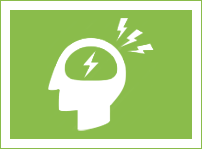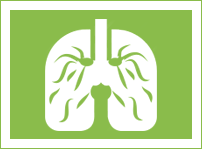Medical Marijuana Evaluation Center


Severe Chronic Pain
Severe chronic pain is often the result of other conditions or treatments of conditions, such as chemotherapy treatment for cancer, and can be both debilitating and exhausting and many times can lead to chronic depression. While pharmaceutical drugs are available to combat pain and depression, they can be highly addictive and can often cause side effects that are just as unpleasant. The use of medical marijuana in Colorado patients suffering from severe chronic pain has shown in multiple studies to lift moods of depression and reduce or even sometimes completely alleviate pain symptoms without drugs.

Muscle Spasms
Colorado medical marijuana patients have discovered many of the drug’s benefits in relation to treatment for muscle spasms. Muscle spasms can occur as the result of injury or illness, such as epilepsy, stroke, MS, cerebral palsy, or other conditions. Pharmaceutical drug treatment for muscle spasms is often laced with side effects and can become highly addictive. The use of medical marijuana to treat muscle spasms has been shown to relax the nervous system and provide a calming effect to the body while also reducing pain. Marijuana is an effective, natural alternative to pharmaceutical drugs and provides both immediate and long lasting results.

Multiple Sclerosis (MS)
Multiple Sclerosis, or MS, is a disease that attacks the central nervous system, causing severe pain, tremors, and loss of many functions. MS attacks nearly 350,000 people in the U.S. alone, and for patients suffering from MS in Colorado, marijuana can provide a great deal of symptom relief. While medical marijuana cannot relieve symptoms completely, it can be highly effective in improving eyesight, appetite, speech and balance. Medical marijuana also helps reduce chronic pain, tremors and muscle spasms, calming the nervous system and offering some patients the ability to walk unassisted by walkers or wheelchairs.

Severe Nausea
Severe nausea can often be a side effect of another illness, and is one that can lead a patient toward malnourishment and exhaustion. Patients undergoing treatment for other illnesses such as cancer or Leukemia who are required to be treated with chemotherapy will often experience continued nausea to the point of being unable to ingest anything. Colorado medical marijuana patients have found that using the drug as part of a prescribed regimen greatly reduces symptoms of nausea and often stimulates the appetite. Nausea can be caused by a number of conditions, and the inhaled use of medical marijuana has been shown to be a more effective treatment than traditional medicines which in some cases patients may not be able to keep down.

Cancer
One of the most common side effects in cancer patients tends to be nausea as a result of chemotherapy treatment, and for many patients in Colorado, medical marijuana use is an effective tool in reducing bouts of severe nausea. For those patients who are unable to keep medication down, the inhalation of the cannabinoid drug reverses the nausea effects caused by chemotherapy treatment, as well as easing anxiety and pain related to treatment. Medical marijuana has also been found to stimulate appetite, which is effective for cancer patients who, due to nausea, have been unable to eat and are experiencing treatment-related weight loss.

Epilepsy
Known as a neurological condition that appears in the form of seizures, epilepsy is a condition which affects the nervous system. Although seizures can also be caused by an injury to the brain or through genetic inheritance, epilepsy related seizures generally have no known cause. Colorado medical marijuana patients may be able to control seizures through the use of the drug with fewer or no side effects generally experienced by the use of traditional medicine. Because marijuana produces a calming effect on the body, the nervous system is less likely to cause seizures. Patients who use medical marijuana for epileptic seizures report fewer instances of seizures with regular use..

Cachexia
For patients with cachexia in Colorado, medical marijuana has the potential to be a very simple answer to a complex problem. Known as a serious wasting syndrome, cachexia generally results in nutritional deficiencies caused by other underlying issues. Patients with cachexia may experience weight loss, fatigue, weakness, lowered appetite or loss of appetite and possible muscle atrophy. Many conditions may lead to cachexia such as autoimmune diseases or perhaps cancer, yet the end result is the same. Patients who are unable to eat will begin to experiencing malnourishment and fatigue and will experience great difficulty performing even the most mundane tasks. Once a body becomes malnourished, it will begin to have electrolyte imbalances and in some severe cases, this can lead to death. Medical marijuana has a proven appetite stimulation effect, and for patients experiencing complete lack of appetite, use of marijuana may be effective in reducing the effects of wasting.

Glaucoma
Glaucoma is a condition that is caused by increased eye pressure, resulting in damage to the optic nerve and can cause eventual blindness. For glaucoma patients in Colorado, marijuana use may be an effective alternative to surgery. Medical marijuana use reduces pressure immediately in the eyes and the effects can last up to four or five hours. While medical marijuana will have varying degrees of effect in patients with glaucoma, adding marijuana to a treatment regimen may allow patients a secondary source of relief and perhaps eliminate the need for surgery.

HIV/AIDS
HIV positive patients can find daily life extremely painful. HIV attacks the body’s immune system, destroying white blood cells and rendering the body unable to fight infection. Once the body has become severely weakened, AIDS will occur. For HIV patients in Colorado, medical marijuana may be the best form of relief from the many symptoms that occur with HIV. Medical marijuana will help to reverse symptoms of nausea and weight loss, and helps to relieve pain and improve symptoms of depression. Cannabinoid drugs have been shown in studies to relieve a wide range of symptoms commonly found in relation to HIV that other traditional drugs have not.

PTSD
Post-traumatic stress disorder (PTSD) is a mental health condition that's triggered by a terrifying event — either experiencing it or witnessing it. Symptoms may include flashbacks, nightmares and severe anxiety, as well as uncontrollable thoughts about the event. Cannabis not only helps reduce the runaway fear response in those with PTSD but has many other tangible benefits as well.

Rheumatoid Arthritis
Rheumatoid arthritis (RA) is an autoimmune disease in which the body’s immune system – which normally protects its health by attacking foreign substances like bacteria and viruses – mistakenly attacks the joints. This creates inflammation that causes the tissue that lines the inside of joints (the synovium) to thicken, resulting in swelling and pain in and around the joints. CBD Tinctures and creams can help the joint pain.
DENIED CONDITIONS
By The State…
It Is Ok If You Suffer From These Conditions, They Just Can’t Be The Reason You Get Your Card.
